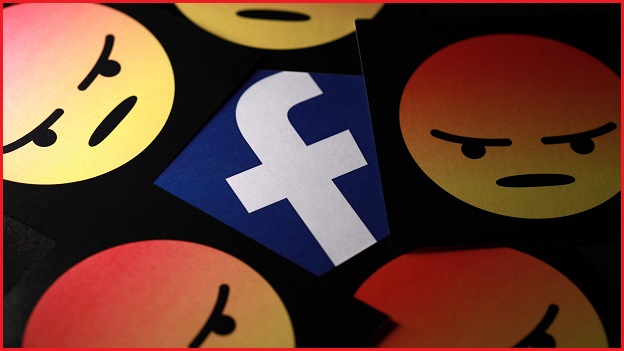When all of Facebook’s services went down early on Tuesday morning it sent a shockwave across the internet.
Facebook, Instagram, messaging platform WhatsApp, and virtual reality service Oculus all disappeared suddenly in an outage lasting nearly six hours.
It was a telling technical fault that showed the extent of Facebook’s power as families lost contact with their loved ones and businesses couldn’t reach customers.
Facebook staff were back to communicating with each other using email, rather than an internal version of the social network, and reportedly struggled to use their access cards for building entry.
As Facebook scrambled to get its networks back online – an effort which included hurried trips to data centres for manual resets – conspiracy theories proliferated about the outage’s cause.
One theory was that it related to a supposed data breach as a user on a hacking forum claimed to have access to 1.5 billion private Facebook records and was willing to sell them.
That turned out to be a likely scam.
Another popular theory was that Facebook had taken its systems offline in response to a 60 Minutes episode featuring whistleblower Frances Haugen.
A former Facebook engineer, Haugen provided a trove of internal documents to the Wall Street Journal showing how Facebook is aware of the damage its platforms can cause users and society in general.
But the underlying cause of Facebook’s hours-long downtime was apparently more mundane as Santosh Janardhan, Facebook’s VP of Infrastructure, explained in a blog post on Tuesday.
“Our engineering teams have learned that configuration changes on the backbone routers that coordinate network traffic between our data centers caused issues that interrupted this communication,” he said.
“This disruption to network traffic had a cascading effect on the way our data centers communicate, bringing our services to a halt.”
Blowing the whistle
Still, as Facebook’s services were returning online the social media giant was still wading through a public relations nightmare.
Haugen appeared in front of a public US Senate hearing on Wednesday during which she took aim at a lack of oversight that has meant Facebook’s inner workings have long remained hidden.
“Only Facebook knows how it personalizes your feed for you,” Haugen said.
“At other large tech companies like Google, any independent researcher can download from the internet the company search results and write papers about what they find, and they do.
“But Facebook hides behind walls that keeps researchers and regulators from understanding the true dynamics of their system.”
She said the company’s supposed concerns about privacy meant it couldn’t share data about how information flows on its platforms – a strategy Haugen objects to.
“When tobacco companies claimed that filtered cigarettes were safer for consumers, scientists could independently invalidate these marketing messages and confirm that, in fact, they pose a greater threat to human health,” Haugen said.
“The public cannot do the same with Facebook. We are given no other option than to take their marketing messages on blind faith.”
The Verge’s deputy editor Elizabeth Compatto also compared Facebook to tobacco companies, accusing the company of running the big tobacco playbook by keeping its CEO Mark Zuckerberg out of the spotlight as Haugen's whistleblowing.
Zuckerberg didn’t appear at the Senate hearing, choosing to make a lengthy statement on his personal Facebook page afterward.
“It’s been quite a week,” Zuckerberg started before saying his company had “spent the past 24 hours debriefing” to mitigate the risk of future outages.
Teen Harm
Zuckerberg then launched into a defensive rebuttal against claims that Facebook promotes divisive content and is harmful to young users.
This second point was a particular bugbear for Zuckerberg whose company has previously put measures in place to become more child-friendly.
“It is incredibly sad to think of a young person in a moment of distress who, instead of being comforted, has their experience made worse,” he said.
“We have worked for years on industry-leading efforts to help people in these moments and I'm proud of the work we've done. We constantly use our research to improve this work further.”
But the internal documents Haugen shed light on shows a different story. According to the Wall Street Journal, Facebook’s own research had found that a third of teen girls said Instagram exacerbated negative feelings about their own bodies.
Teens also blamed Instagram for rising rates of anxiety and depression.
Facebook’s own researchers recognised some of these mental health problems as being an Instagram-specific issue, not related to social media overall.










